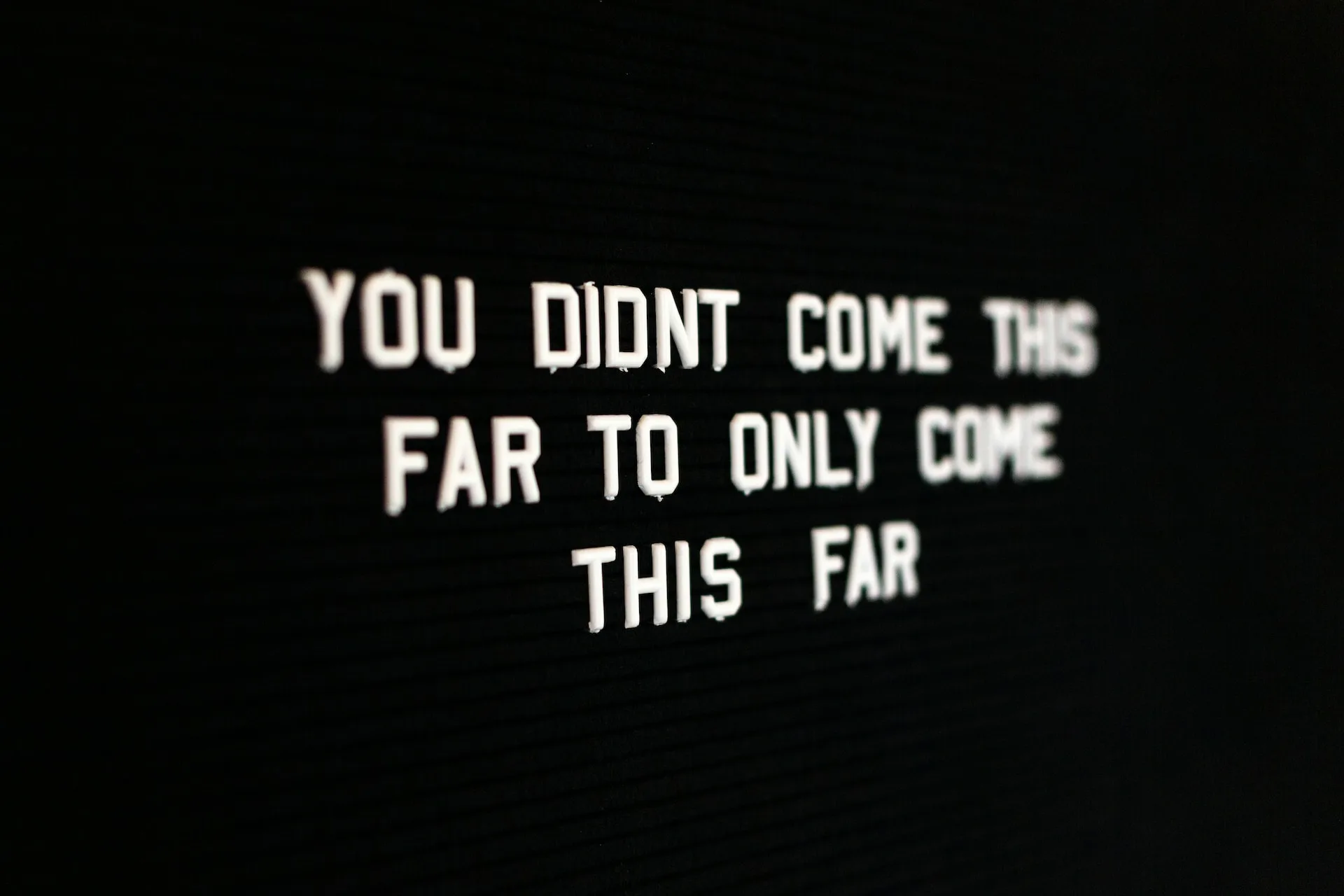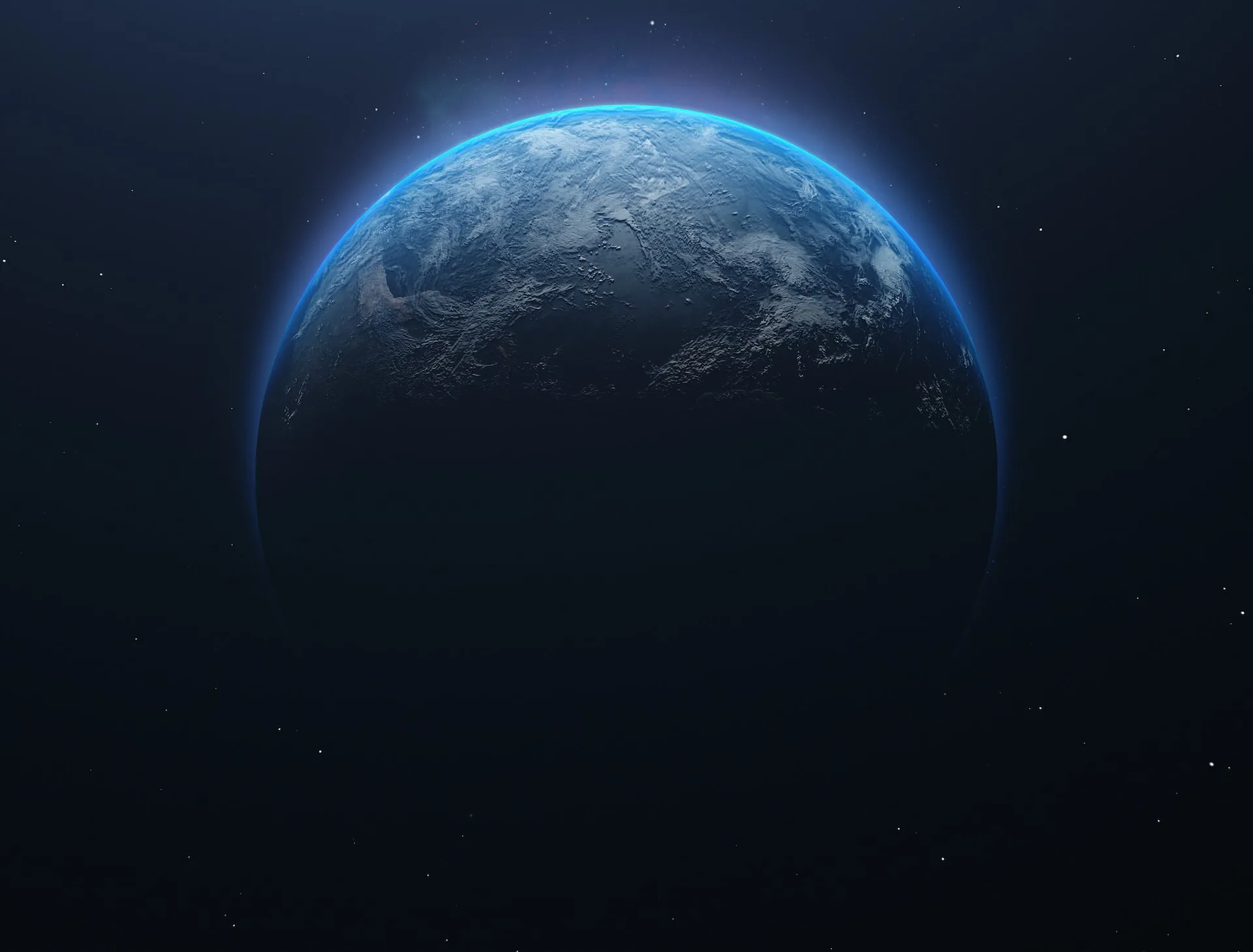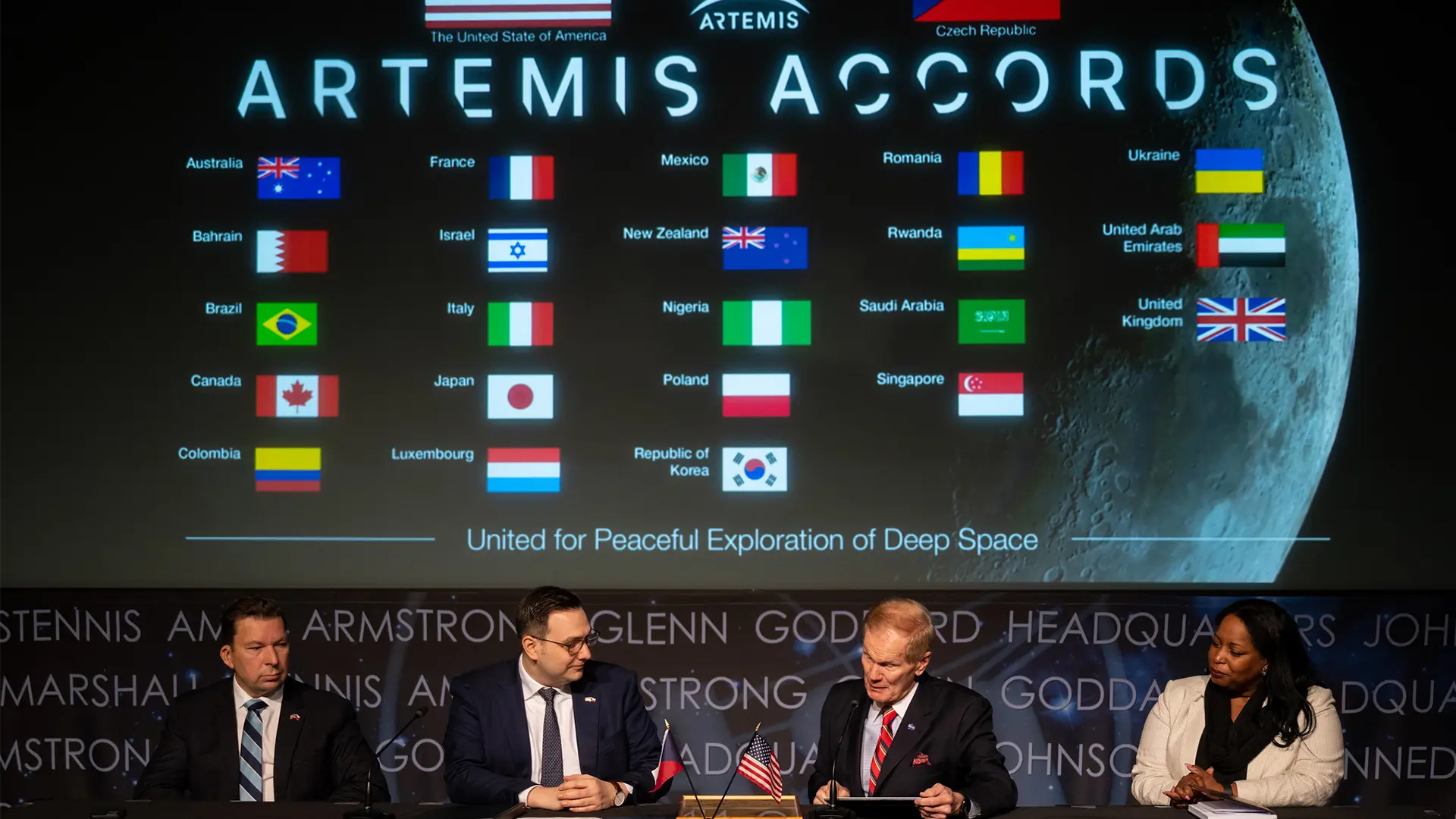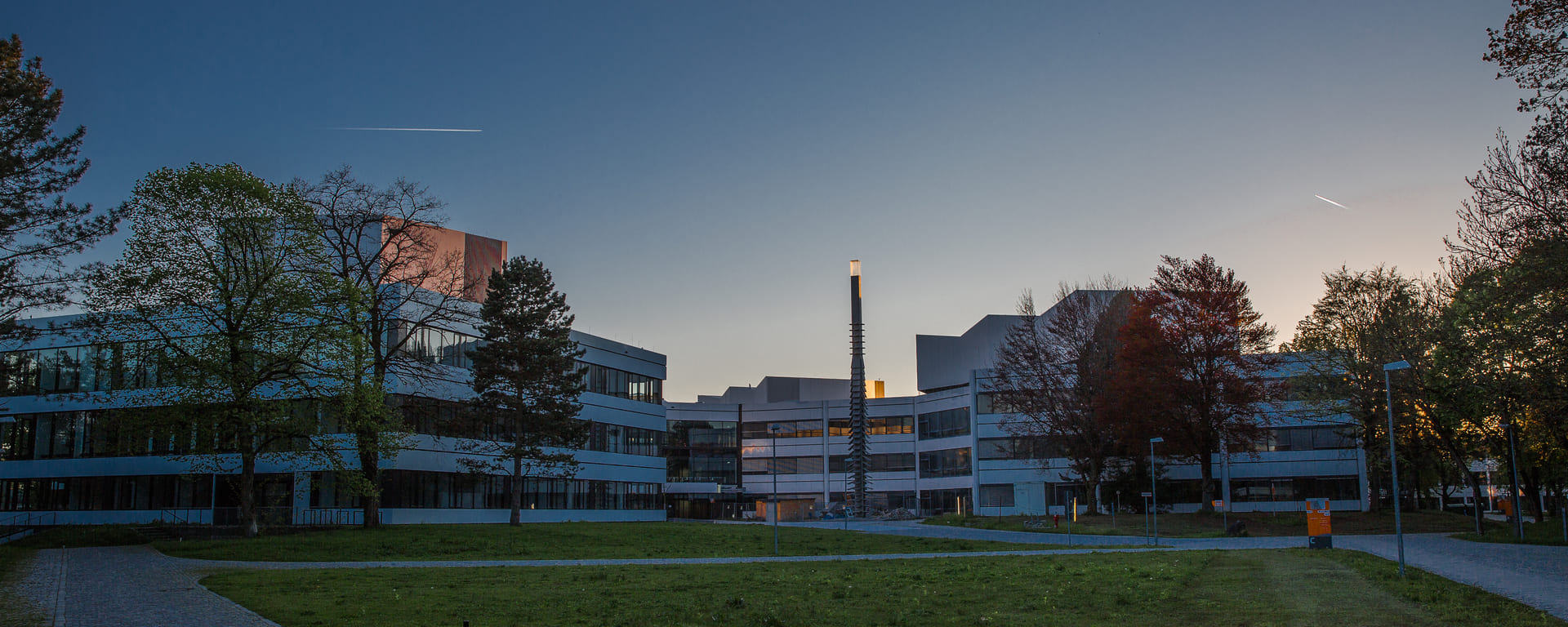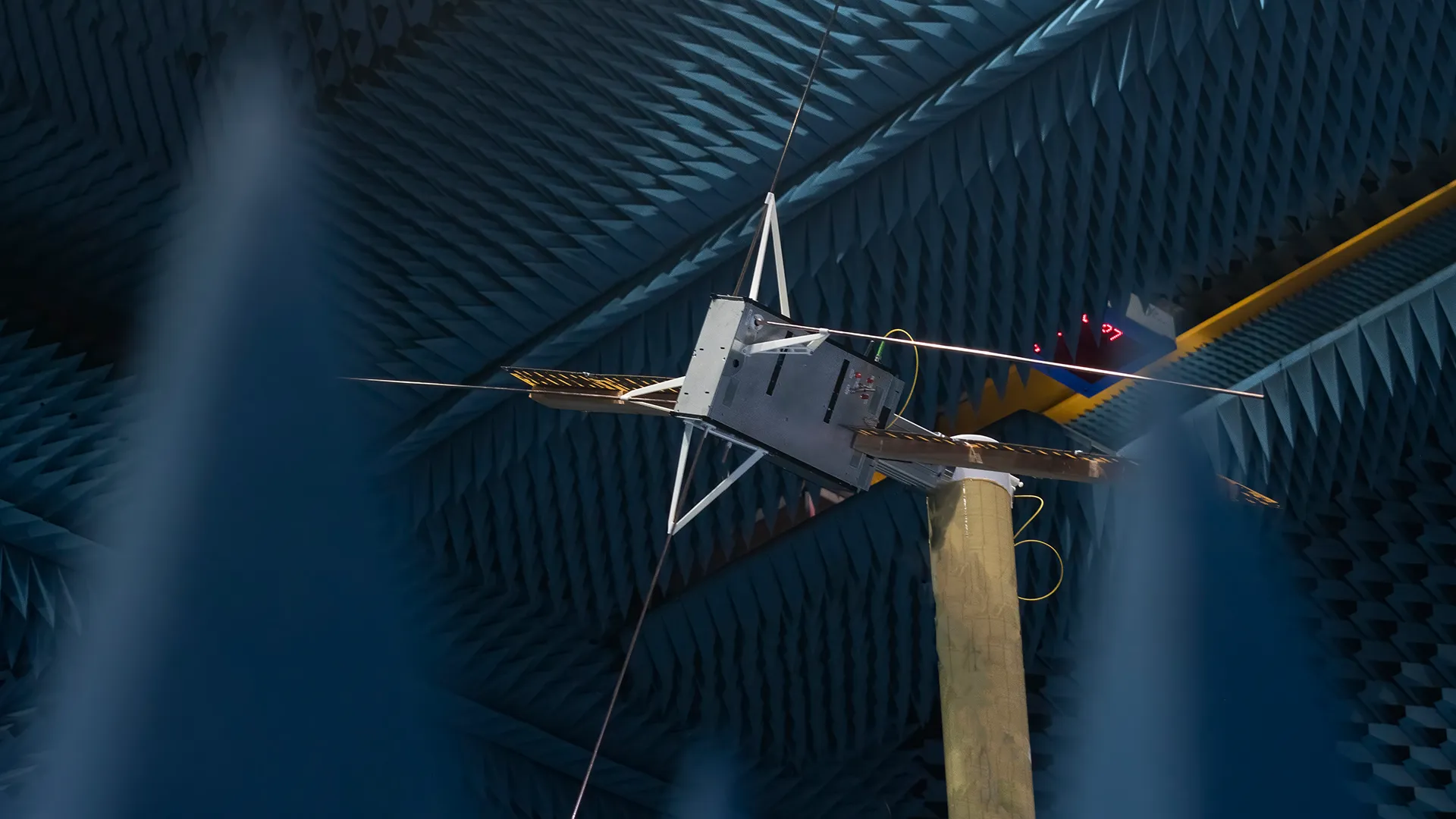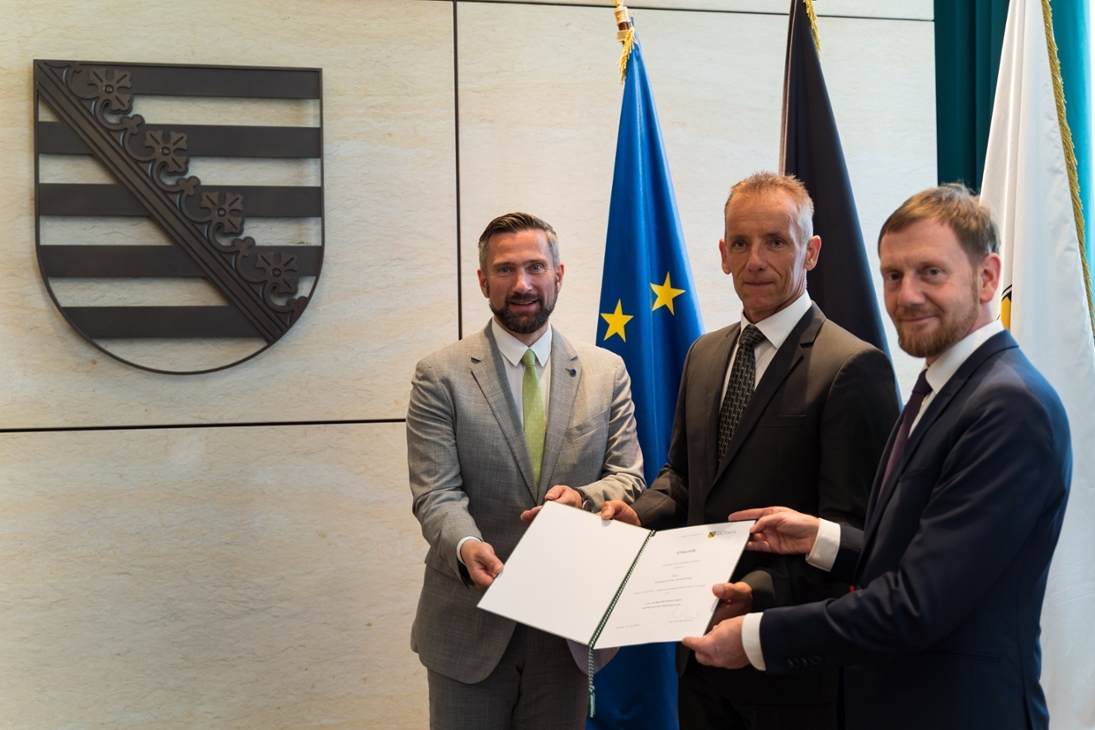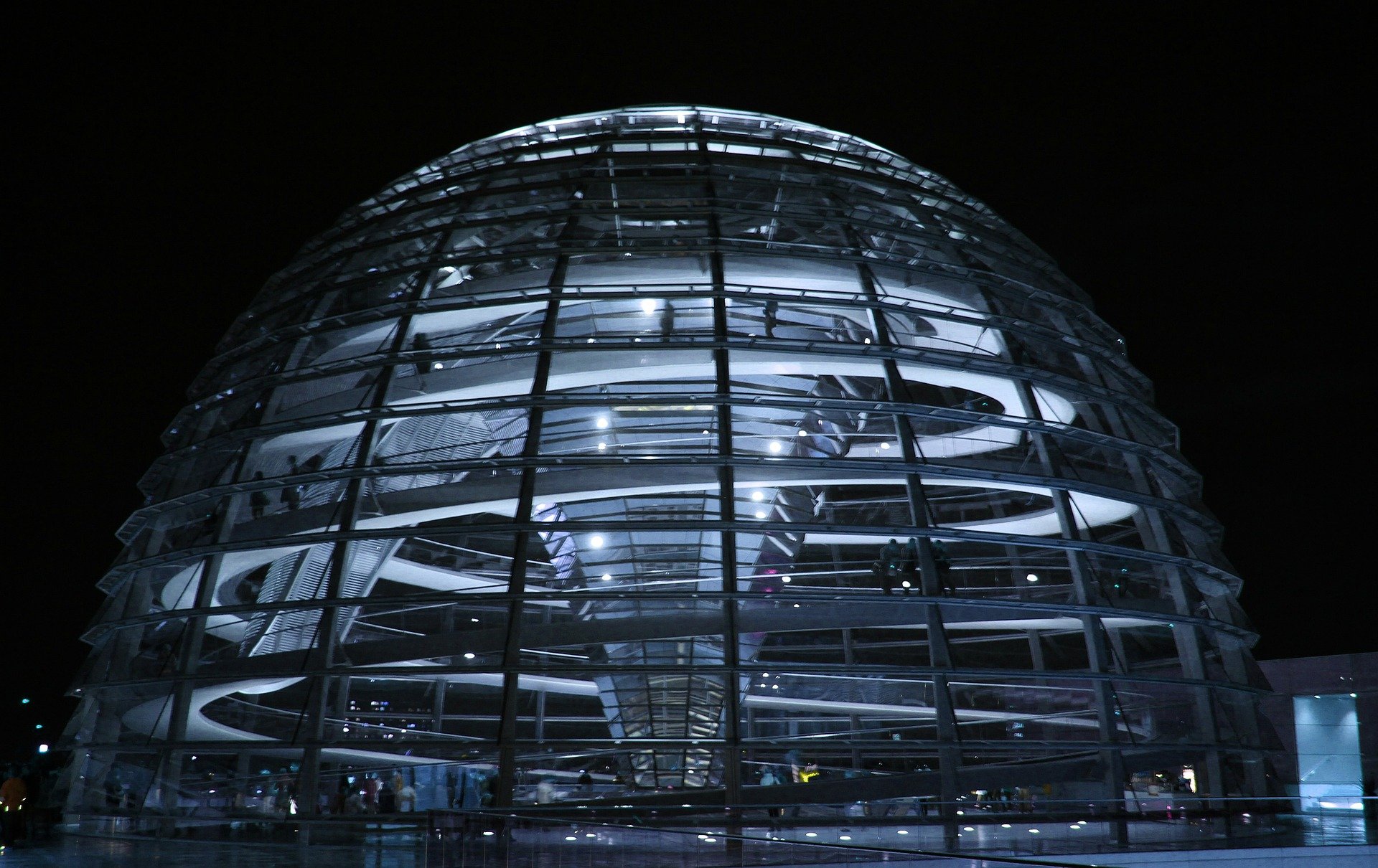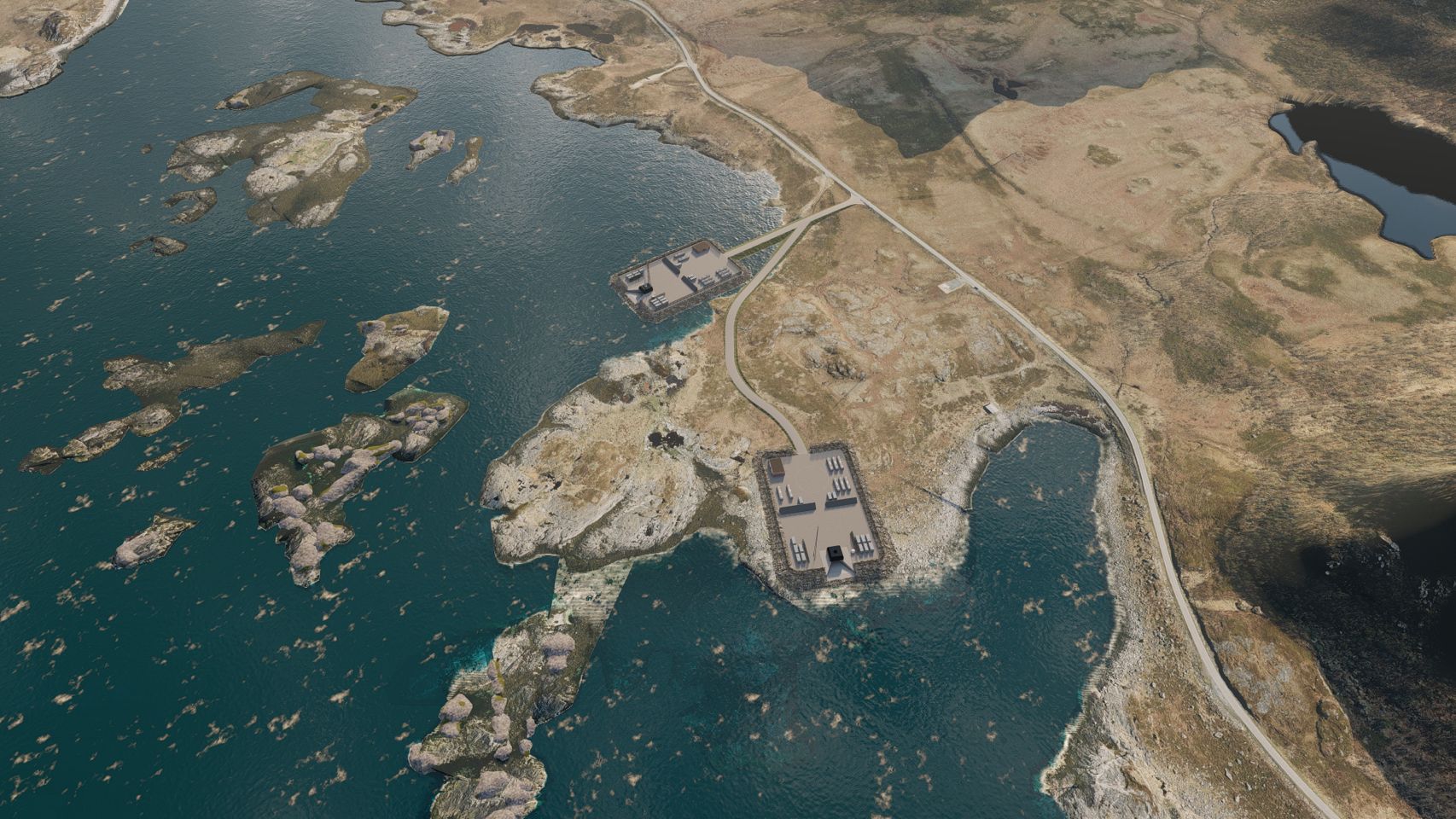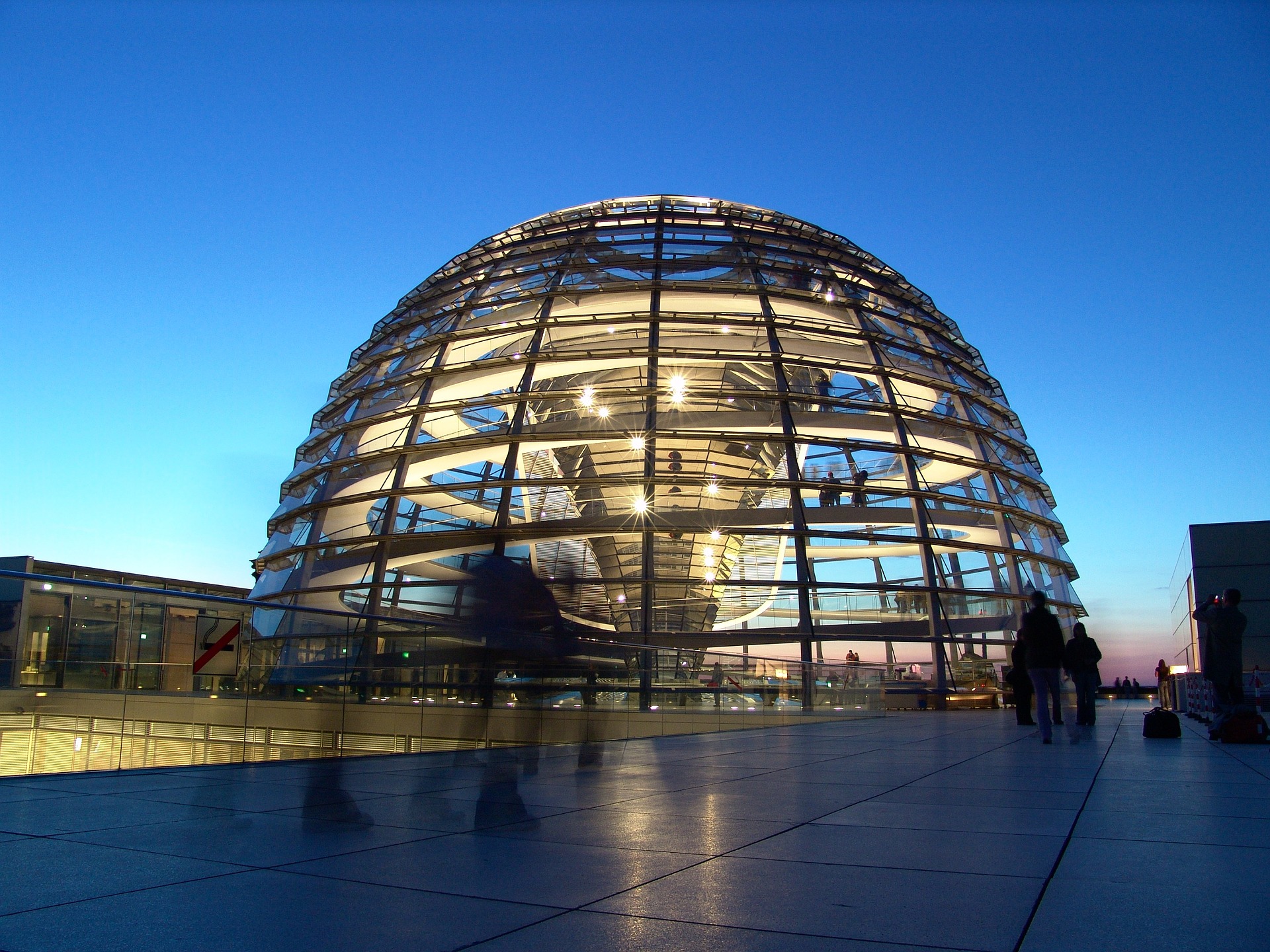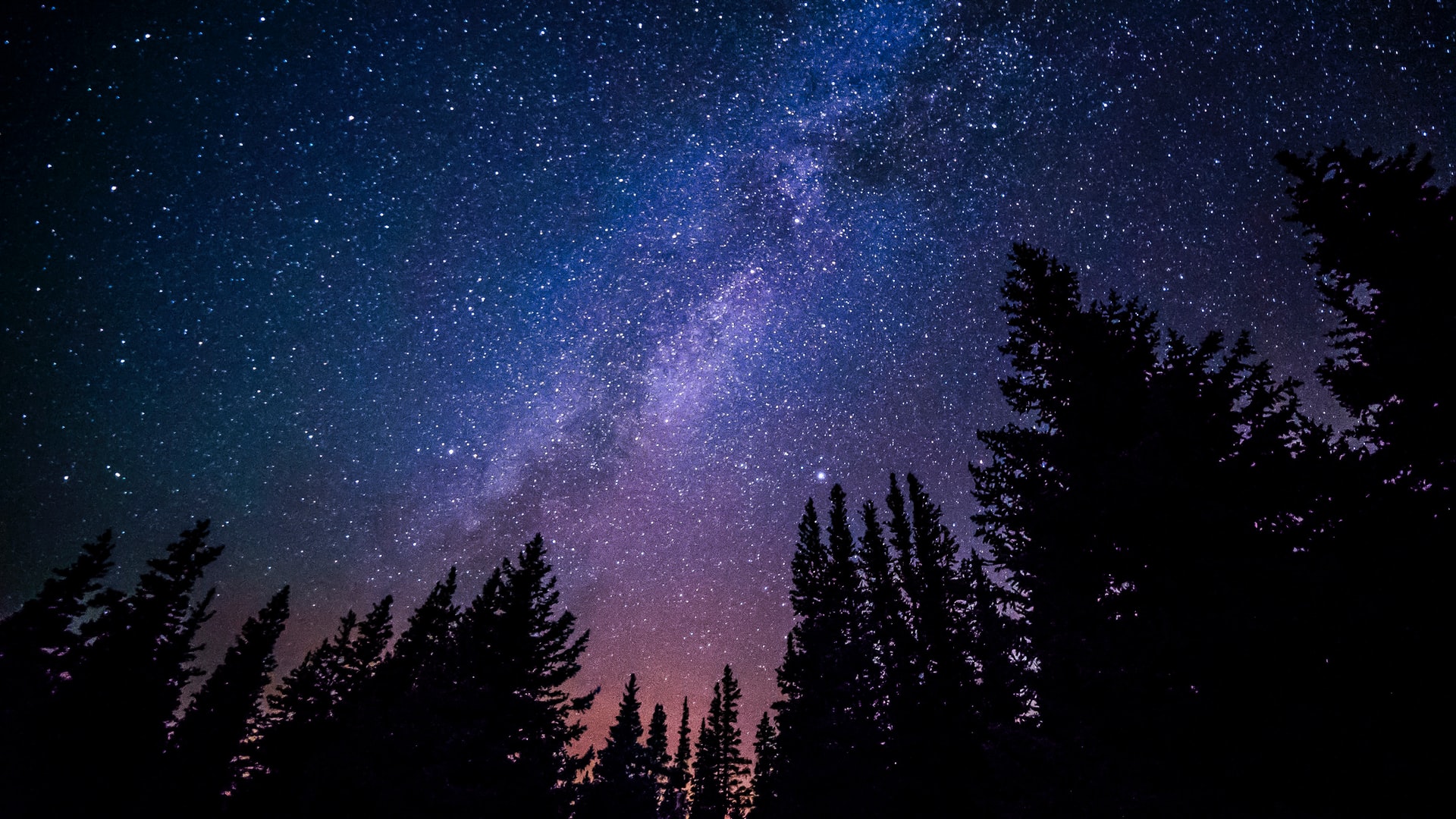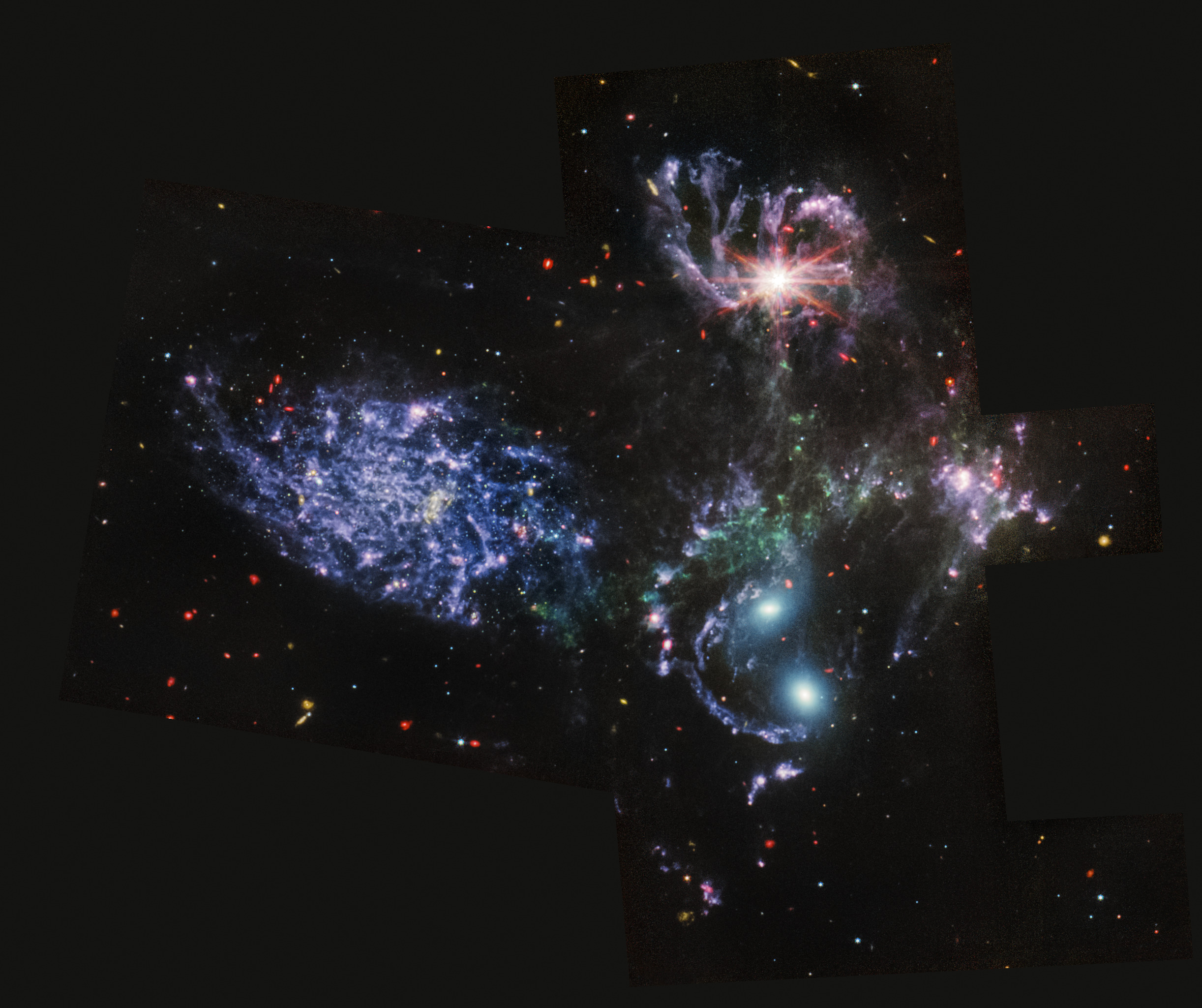
"Science Year 2023 - Our Universe" started
Published on Wed, 25.01.2023 – 16:19 CET in Events, covering VerwaltungThe Year of Science, initiated by the German Federal Ministry of Education and Research (BMBF) and the Science in Dialogue initiative, has been taking place since 2000. This year's theme is "Our Universe" and is intended to "invite citizens of all generations on an expedition to the limits of the imagination.
The big questions in the history of mankind have always been about the universe. Are we alone in the universe, where did we come from, and what else is there? For generations, scientists have tried to find answers to these questions. Nevertheless, there has been an immense amount of progress and new knowledge in recent decades. For the general public, the first image of a black hole or the images from the James Webb Space Telescope were probably the most impressive.
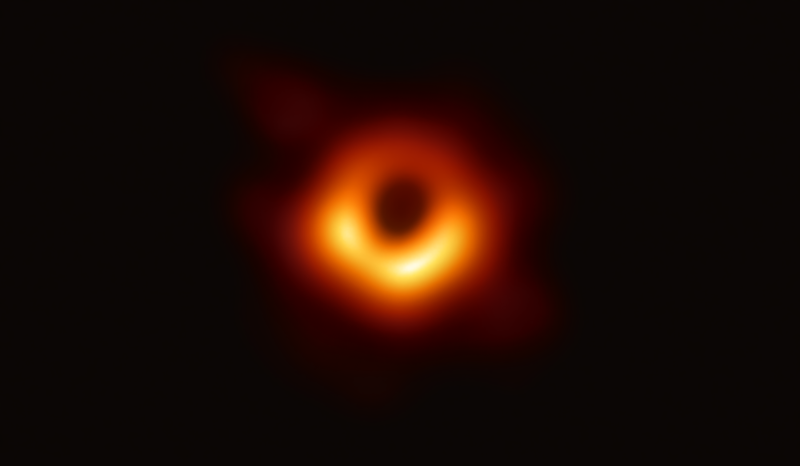
© Event Horizon Telescope (ESO)
The STEM skills shortage has been around for a long time
But despite all the enthusiasm, a problem is emerging in both science and the space industry: a shortage of skilled workers. According to the MINT Autumn Report, there will already be a shortage of around 326,100 workers by October 2022. In the academic year 2021/2022, there will only be 307,059 first-year students in mathematics, science and engineering. For the years 2029 to 2033, experts even expect a replacement demand of 75,200 STEM graduates per year. According to the fall MINT report, the situation is exacerbated by the fact that career guidance for students is still suffering from the effects of the Corona pandemic. Almost three-quarters of the information opportunities provided by fairs, internships and information events have disappeared. There is an urgent need to attract potential young talent to relevant courses of study and training as early as possible.
This is how the Science Year 2023 is to become an experience
Universe on Tour
According to the BMBF, there will be numerous hands-on activities during the Science Year 2023. One of the highlights will be the "Universe on Tour" roadshow. This mobile planetarium will stop at 15 locations between May and September 2023. Admission to the half-hour shows is free.
| Date | Location |
|---|---|
| May 8-14, 2023 | Rostock |
| May 15-21, 2023 | Potsdam |
| May 22-28,2023 | Hoyerswerda |
| May 29 - June 4, 2023 | Jena |
| June 5-11, 2023 | Göttingen |
| June 12-18, 2023 | Fulda |
| June 26 - July 2, 2023 | Bamberg |
| July 3-9, 2023 | Munich |
| July 10-16, 2023 | Tübingen |
| July 17-23, 2023 | Heidelberg |
| July 24-30, 2023 | Frankfurt am Main |
| August 7-13, 2023 | Bonn |
| August 14-20, 2023 | Dortmund |
| August 21-27, 2023 | Bielefeld |
| September 4-10, 2023 | Oldenburg |
Citizen Science to study nocturnal light phenomena.
There will also be an exhibition tent dedicated to the theme of light. In addition, visitors will have the opportunity to become part of the citizen science project "Nachtlicht-BüHNE". The goal of the project, which was originally funded by the Helmholtz Center, is to measure light pollution in Germany. To this end, an app has been developed that allows users to enter data.
School Cinema Weeks
As part of the Year of Science 2023, there will again be school cinema weeks. The idea is to move classes to the movie theater for a short period of time. Themed films will be shown there. In Saxony, for example, the selection includes Checker Tobi and the Secret of our Planet (Checker Tobi und das Geheimnis unseres Planeten), Dear Future Children and Tomorrow Belongs to Us (Morgen gehört uns). The program is supplemented by special events with renowned scientists, who then invite us to film discussions.
| Dates | State |
|---|---|
| January 26 - February 8, 2023 | North Rhine-Westphalia |
| March 2-15, 2023 | Lower Saxony |
| March 13-24, 2023 | Hesse |
| March 12-17, 2023 | Bremen |
| March 16-31, 2023 | Brandenburg |
| March 20-31, 2023 | Bavaria |
| March 27 - April 6, 2023 | Saxony |
| November 9-17, 2023 | Baden-Wuerttemberg |
Opening event at Futurium Berlin
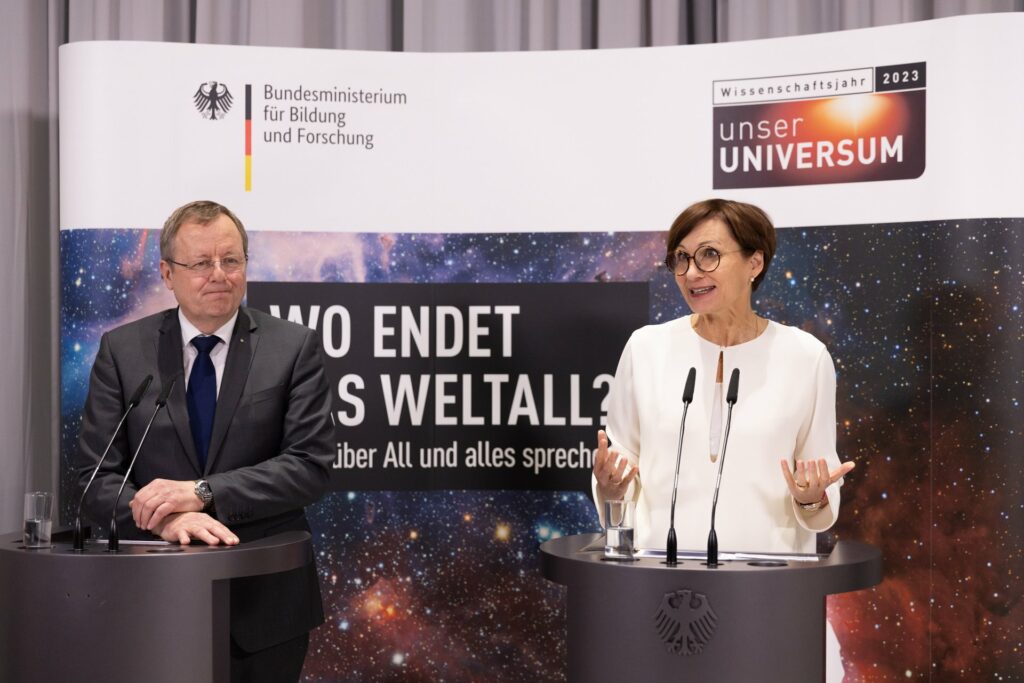
The opening event at Futurium Berlin was hosted by Dr. Suzanna Randall, astrophysicist at the European Southern Observatory ESO and aspiring astronaut, and astrophysicist, philosopher and science journalist Dr. Sybille Anderl. The Science Year 2023 was opened by the Austrian Minister of Education and Research Bettina Stark-Watzinger and Dr.-Ing. Jan Wörner, Director General of the European Space Agency ESA from July 2015 to February 2021. Also present were the Chairman of the Committee for Education, Research and Technology Assessment, Kai Gehring, the Managing Director of Wissenschaft im Dialog gGmbH, Christian Kleinert, and the Director of Futurium, Dr. Stefan Brandt.
